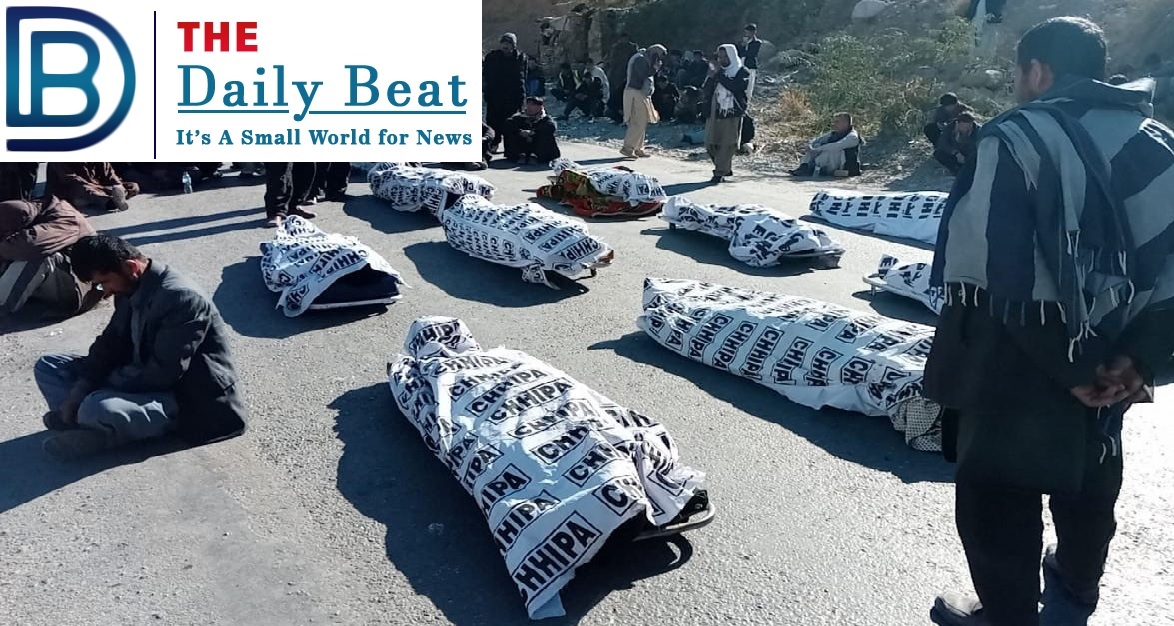Pakistan was created on the ideology of giving Muslims a safe space to live without the fear of prosecution, Prime Minister Imran khan won the elections on the promise of delivering a state equivalent to that of the Medina, however, the eleven unburied corpses on the sixth night tell a story of all those deviated trajectories and promises unfulfilled.

Shia-Hazara community, targeted for their religion by sectarian gatherings, have endured numerous such tribulations for more than quite a long while. Each time, there are guarantees that more will be done to ensure them, and each time those guarantees have neglected to appear. Just four days ago, 11 coal miners belonging to the Shia-Hazara community were killed. Their bodies were found in the most barbaric way with silted necks. When the information on the tragedy spread, countless individuals, including women of the deceased, from the Hazara community, rampaged close to Hazara town. They likewise obstructed traffic on the western detour by putting burnt tires and shakes on it. Simultaneously, individuals from the Hazara community working at the coal mine-shafts impeded traffic on the Quetta-Sukkur highway that joins Quetta with Sindh. The dissidents didn’t permit the nearby organization authorities to move bodies to Quetta.
The plight of the Shia Hazara community has been going on for decades. The genocide against Shia-Hazaras began from pre-partition Afghanistan by Abdurrahman khan, Dracula Ameer, did massive killings, after the huge number of killing, slavery, few fled across the border. they, however, could not get emancipation in Pakistan as well.
Since the most recent thirty years, sectarianism is harming the state just as the general public of Pakistan. It has become a danger to the security of the nation. The Shia-Hazara people group turned into the most targeted group for sectarian violence in 1953. Sectarian violence was overflowing in Pakistan during the 1980s and mid-1990s. Also, on the decline, the current decade is encountering continuation of sectarian-based violence incidents in different pockets of Pakistan-Karachi, Kurram, Jhang, and Quetta and so on, all have been targeted for sure because of sectarian differences. The current sectarian encounter is partitioning the already divided population of Pakistan with serious repercussions. It tends to be appropriately placed into composing that ordinary citizens of Pakistan are living in dread since most recent sectarian clashes have enhanced death, suicide bombings, and various terrorists’ assaults.
The erasure of identity in the name of unity is what makes us blind to a genocide. To bring a change in system exchanges it is requisite to claw back decades of heated that is entrenched in the hearts of people. Sectarian-specific terrorist attacks can only be eliminated if the Prime Minister puts special influence on decision making at the parliamentary level which will also influence the media reporting of such incidents. Such gruesome and tragic incidents divide the country e independent trenches among the population. The feelings of being the undesirable group who are facing marginalization and discrimination on both accountability and judicial levels create feelings of mistrust for the state. The quintessential case of such disparity and discrimination leads to the creation of anti-state sentiments and behavior motivated by the lack of justice.
The Silence from both the government in opposition parties further escalates the agony of mourners who are sitting in cold temperatures with the unburied bodies of their loved ones. Well, there is nothing that can eradicate the pain that these people are feeling butter holistic nationwide solidarity might compensate for some of the pain that they are enduring. The state must remove any partiality from the legal system and to remove assumptions about the central role of the state in managing terrorism and eradicating such acts of violence against ethnic and sectarian communities of Pakistan.

Author is a graduate from Quaid-e-Azam University with majors in international relations. She loves to sit with a cup of coffee to pen down her thoughts. She is keen towards finding potential solutions to problems that concern the world.
